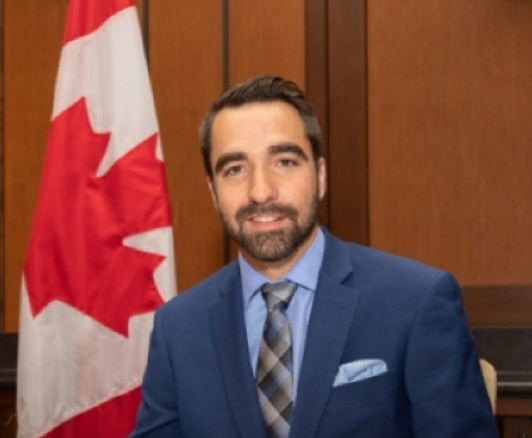It's an issue that has existed long before COVID-19 became a daily reality.
But with consistently more people working from home due to the reality of the pandemic, the disparity regarding internet access between urban and rural residents has never been more on display.
On May 6, 2020, the federal conservative caucus launched a consultation process hoping to come up with recommendations by seeking feedback from Canadians and participating in a working group focused on expanding broadband access to more rural communities.
Jeremy Patzer, Member of Parliament for Cypress Hills-Grasslands, brings a background in the telecommunications industry to that working group.
By May 15, 2020, he came out of the first two meetings still concerned.
"As far back as 2008, they were talking about broadband. How do they get broadband to all Canadians? Here we are in 2020 it was still haven't really figured that out yet. COVID-19 has really exposed the need that we have to get this addressed and get this dealt with. It's becoming a mode of inequality for Canadians to have equal access; to be able to participate in both (not only) the economy but in every day-to-day activity."
For a point of technical reference, in 2016 the CRTC, the independent public authority in charge of regulating and supervising all broadcasting and telecommunications, defined basic internet service to be 50 Mbs download and 10 Mbs upload; in layman's terms, effectively defining broadband speeds as regular internet.
To put a clear number on the disparity faced by rural users, the CRTC's Broadband Fund website states that the national average in Canada is 85.7 percent of that regular speed, whereas rural Canadians average less than half that, at 40.8 percent.
The federal government has promised to connect all Canadians to broadband speeds by 2030, with Rural Economic Development Minister Maryam Monsef stating that COVID-19 has added greater urgency to that.
But Patzer is unconvinced, questioning why it will take more than another decade to see parity.
Part of the problem, he said in an interview with Swift Current Online, is one of spectrum.
"There are other companies that have been trying to get into the wireless market; to try to provide better coverage (and) try to fill some of those gaps in rural Canada. But they're unable to acquire the spectrum because the big three companies are able to buy it up and then not use it."
While he's careful to say that wireless is not necessarily the answer to rural internet woes, with a physical landline still the preference, the imminent upgrade to 5G technology promises the speeds, and possibly the consistency, required to bridge that disparity; making it worth including in the conversation.
Whether privately built, or through a P3 model (Public Private Partnership) which could see municipal governments construct the infrastructure and then rent space to various private entities, the challenges remain the same; namely that without strict regulations, the big three companies in Canada (Bell, Rogers and Telus) who cite population numbers and business concerns as a reason they cannot expand high-speed into rural areas, can nevertheless buy up the available spectrum in order to prevent smaller regional carriers from doing so.
"I think there's a good conversation to be had around (the idea) that if you don't use it then you lose it. Kind of just that way to make sure that people that require that spectrum actually use it. In that way consumers, in the end, will benefit the most from having the best service that they can get."
In a meeting last Thursday, Patzer had a chance to ask representatives from Rogers and Telus about their commitment to servicing rural Canadians, and both answered only that they were still looking for ways to expand service. Representatives for Bell were not present.
The next step, Patzer says, is to survey the residents of his constituency about their experiences.
He stresses that this process is just the beginning and that the recommendations they outlined in their initial proposal so far having been just the starting point.
"By no means is this the complete list there's room for more proposals and ideas within it but it's really a good starting point anyway to get the ball rolling. To get the initiative going. To really bring attention to and drive the narrative and the focus on rural broadband."










